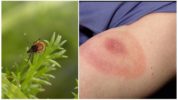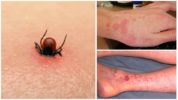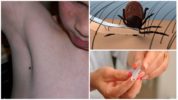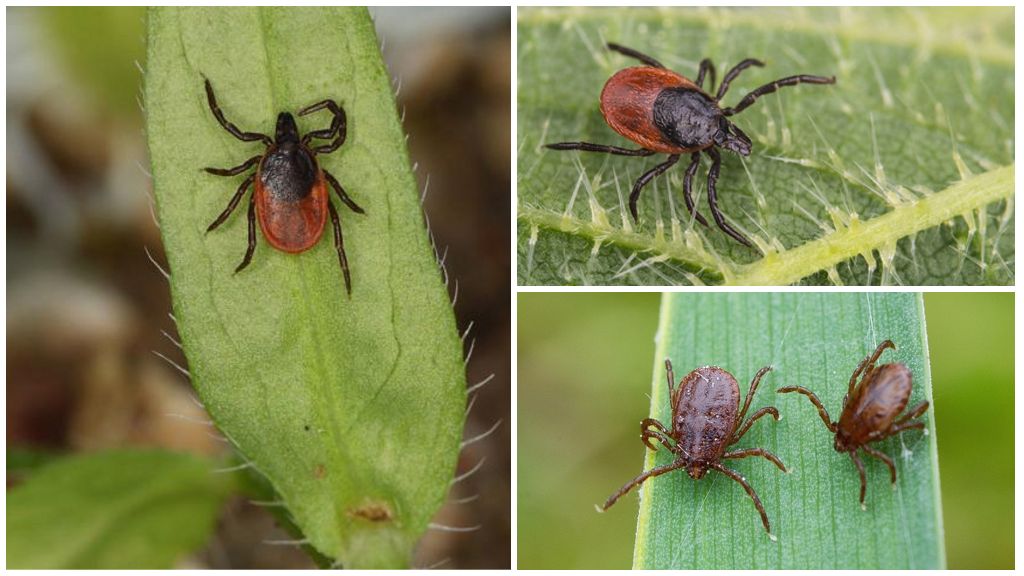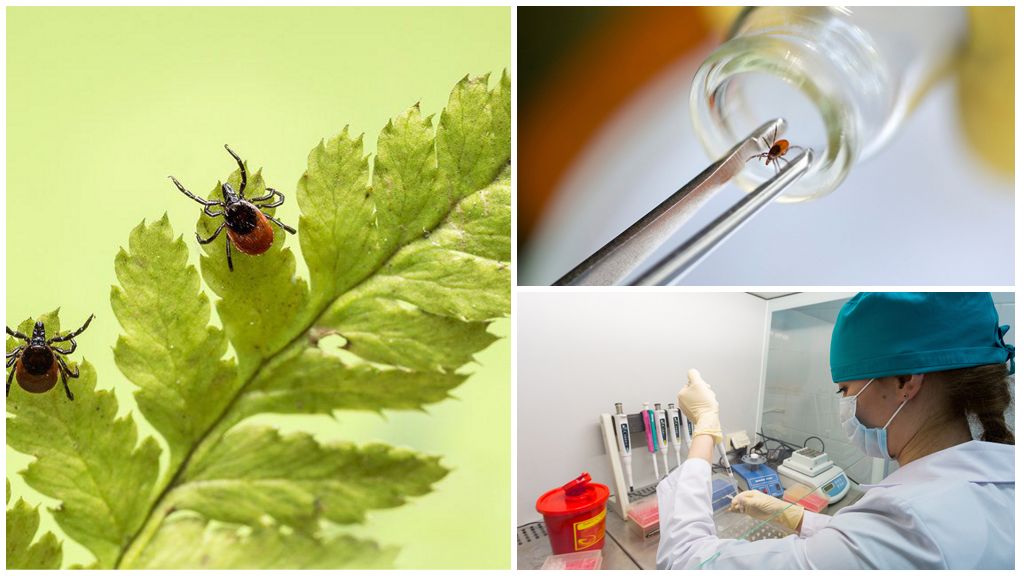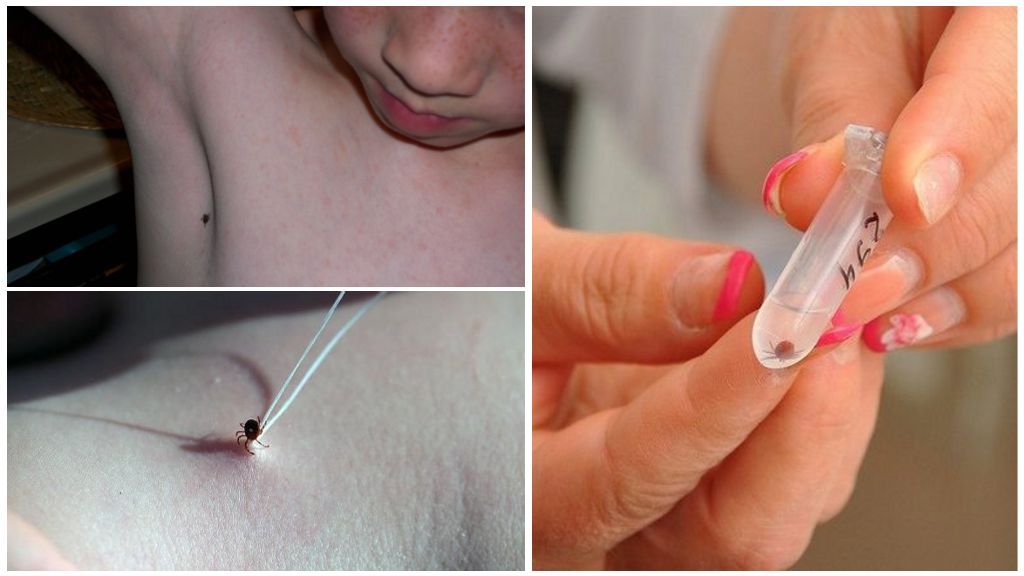- Tick Borreliosis
- Tick-borne rickettsioses
- Blood and tick test
- Removing a tick from the body
- Tick bite insurance
Information about which dangerous diseases transmit blood-sucking parasites, what actions to take if "bloodsuckers" are found on your body. Institutions where to pass the tick for analysis in Irkutsk: opening hours and pricing of services.
Morbidity after tick bites in Irkutsk
In areas of Siberia, including the Irkutsk region, the most dangerous species is the taiga species ixodid ticks (lat.Ixodes Persulcatus). These parasites belong to the class of arachnids and the group of arthropods, one of the oldest on the planet. They feed on the remains of vegetation, fungi located in the soil, small insects. However, many species prefer to feed on the blood of animals and are parasites.
Most often taiga ticks can be found in places with high humidity. They prefer to be in shaded deciduous and mixed forests, where there is a dense grass stand and undergrowth, small shrubs below.
On a note!
Many pests can be found in forest ravines, at the edges and along grassy paths and paths in the city parks of Irkutsk, where they are waiting for their prey - animals and people.
Statistics and dangerous places of Irkutsk
The last 20 years in the Irkutsk region there has been an increase in numbers ticksand often they are carriers of the encephalitis virus: in 1993 - 128 patients, 1998 - 350, 2000 - 477, in 2014 - 257 people fell ill, in 2015 - 317 (131 - encephalitis and 124 borreliosis). When examining the forests, it was found that the tick-borne encephalitis virus is present in 21-30% of ticks that have been laboratory analysis.
The most dangerous places where there are many arthropods in Irkutsk and the region: the Angara region, the Mill Pad, along the Baikal and Alexander tracts, some areas of the region (Irkutsk, Olkhonsky, Cheremkhovsky, Usolsky and Ust-Ordynsky).
According to statistics, for 2017 in the medical institutions of Irkutsk about tick bites more than 15 thousand people applied, which is 2.8% less compared to 2016. 98 of them fell ill with viral encephalitis, 97 with borreliosis and 51 with tick-borne rickettsioses.
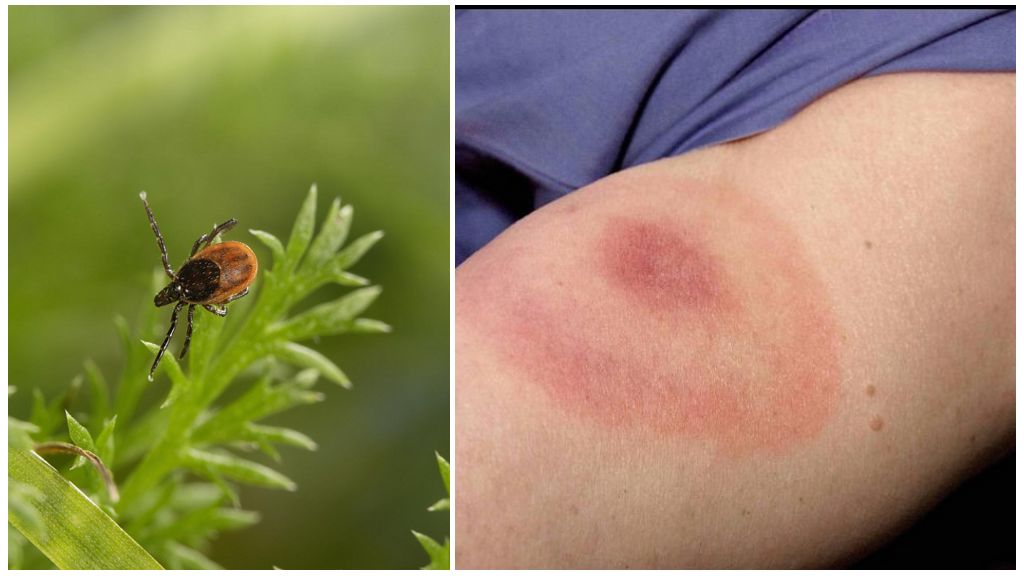
On a note!
According to data from August 2018, almost 14 thousand people turned for help about tick bites, including more than 3 thousand children. With suspected infections, 12 people were hospitalized, encephalitis in 2 people was confirmed, borreliosis - in 2, rickettsiosis - in 2.
Tick-borne encephalitis
This is a serious infectious disease that can lead to serious complications of human health, neurological and mental, as well as death. The causative agents of infection enter the bloodstream of a person with saliva when they bite an infected parasite when it is engaged in bloodsucking. Saliva is secreted by a tick to anesthetize the bite, so the victim does not feel that a “bloodsucker” has sucked into her skin.
In some individuals (especially in females), the process of absorption of blood can continue for several days until complete saturation occurs. After the parasite falls off, a sore spot of 3-5 mm in size, surrounded by a necrotic crust, becomes visible on a bitten place.The wound can last 2-3 weeks.
Symptoms tick-borne encephalitis occur within 2-14 days: fever, severe headaches, cramps, in severe cases - paralysis and death. Therefore, experts advise in advance of the onset of the “bloodsuckers” activity season to get a tick vaccine that helps not to get the encephalitis virus.
On a note!
According to scientists, fatalities in the Irkutsk region account for 3% of the number of bitten people, another 3% of those who received persistent paralysis is one of effects of encephalitis. In mild cases, the disease can manifest itself only by an increase in temperature.
Tick-borne rickettsioses
The disease belongs to the group of the most dangerous for human life. Infection occurs by the transmission method, i.e., when an arthropod bites, in the body of which there are causative agents of the disease, which are intracellular rickettsia parasites (Lat. Rickettsia sibirica), belonging to the group of tick-borne spotted fever (CPL).
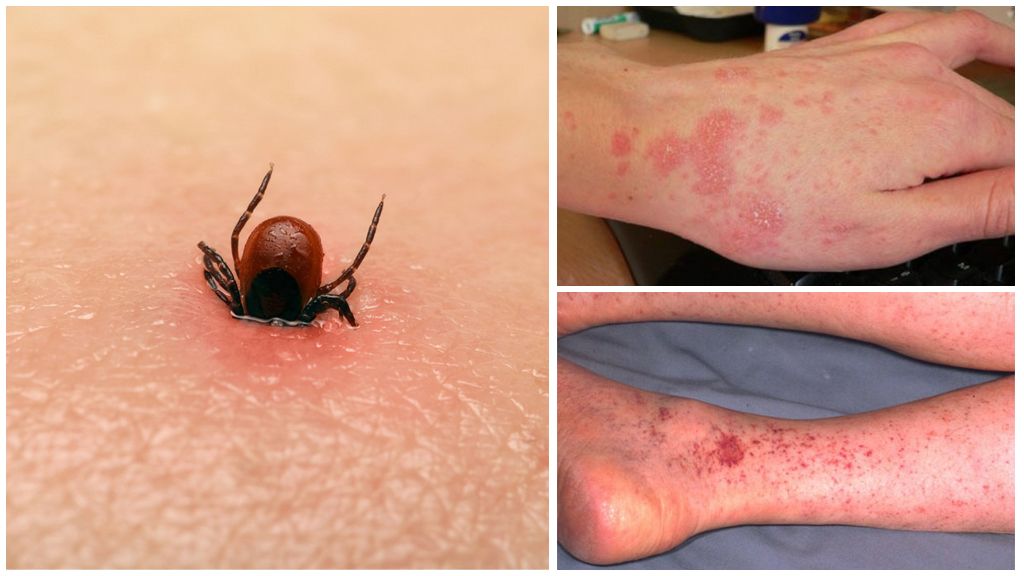
The group of tick-borne rickettsioses includes diseases: typhus; paroxysmal rickettsiosis and trench fever; tick-borne types of fevers (Marseille, Volyn, spotted, vesicular, North Asian, etc.); fever Ku and Tsutsugamushi.
On a note!
Rickettsia can live for a long time in the body of ixodid ticks and even be transmitted to offspring. The carriers of the infection are forest ungulates and agricultural animals and small rodents.
When rickettsia enters the blood and lymph of a person, they actively multiply, causing local inflammation (lymphadenitis, lymphangitis). With further reproduction, damage to the nervous and vascular systems of the body occurs.
The incubation period is 2-7 days, the disease develops acutely. In the severe form of the disease, complications are possible in the form of bronchitis, pyelonephritis, neuritis, myocarditis, etc. Persons who develop a disease develop stable immunity and re-infection is impossible.
If a tick has bitten: the right action
Irkutsk medical workers in a situation where a sucking tick is found on the human body, recommend doing the following:
- remove the parasite yourself or seek help from the Center for the diagnosis of tick-borne infections in Irkutsk;
- put a tick on a piece of wet bandage (gauze) and place in a container with a lid;
- it can be stored in the refrigerator at a temperature of + 2 ... + 8 ° C, but not more than 2 days;
- take the parasite for research to the Center, where tests for the presence of encephalitis and borreliosis can be done during the day.
In the absence of a tick, the disease can be recognized 2-3 days after the bite with blood test. If the causative agent of this disease is detected in the laboratory of Irkutsk, then it is urgent to enter tick-borne immunoglobulin. If Borrelia is found, the doctor prescribes a preventive antibiotic therapy.
Important!
Taking preventive measures against the development of encephalitis is effective only the first 4 days after a bite. There is no vaccine against borreliosis, therefore antibiotic prophylaxis of the disease is carried out.
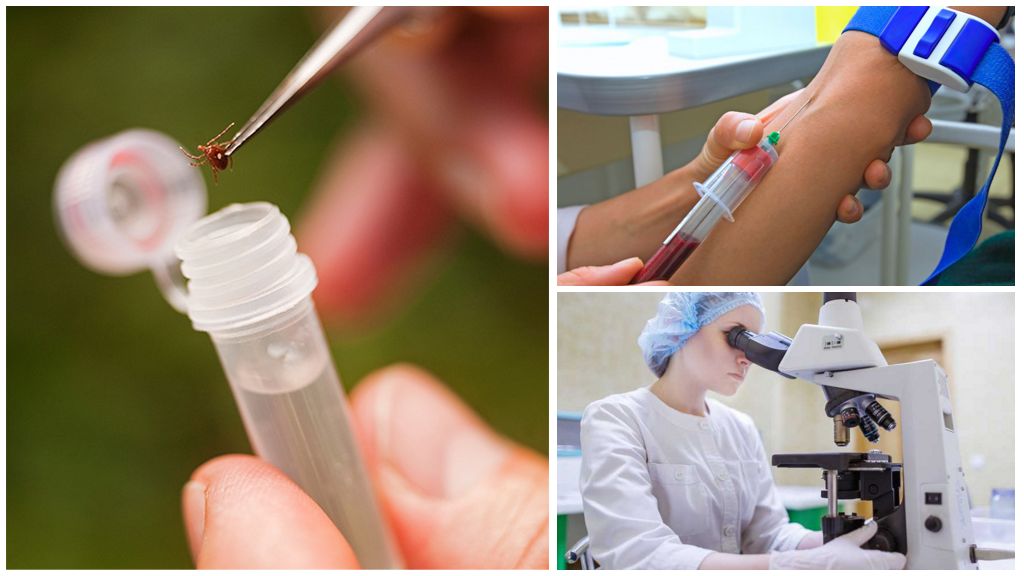
Where to go with a tick bite
List of organizations in the city of Irkutsk and the region where the tick should be taken for research:
- Center for diagnosis and prevention of tick-borne infections: Irkutsk, st. Karl Marx, 3, tel. 7 (3952) 33-34-45, website stop-klesh.ru
- Virology Laboratory of the Federal State Health Institution “Center for Hygiene and Epidemiology in the Irkutsk Region”, tel. 7 (3952) 22-82-04, address: Irkutsk, ul. Trilisser, 51, website: 38fbuz.ru
Tick-borne infection prevention centers in the Irkutsk region:
- Health Unit No. 36; Angarsk District, 7th quarter, 1, tel. 8 (3955) 57-15-30, 57-16-34;
- Medical and Diagnostic Center MANO; 6A microdistrict, 12, tel. 8 (3955) 51-66-37, 51-86-26, 95-29-47;
- Diagnostic center "Health"; Usolye-Siberian, Komsomolsky Prospect, 43, tel. 8 (39543) 6-78-78;
- Clinic №2 OGBUZ Usolsk City Hospital (Lenin St., 71, t. 8 (39543) 6-39-52
- OGBUZ "Bratsk regional hospital", Bratsk, st. Kurchatova, 2, tel. 8 (3953) 44-23-60, 216-004.
Tick-borne cabinet in Irkutsk
A tick-borne room, where you can go to check a tick in Irkutsk, operates at the Center for Hygiene and Epidemiology in the Irkutsk Region. Opening hours in 2018:
- from April 22 to July 16: Monday - Friday from 9-00 to 19-00, a break from 12-00 to 13-00 h.; Saturday, Sunday, public holidays reception from 9-00 to 11-00 (laboratory until 17 o’clock);
- from July 17 to July 30: Monday - Friday from 9-00 to 19-00, a break from 12-00 to 13-00 hours. Saturday, holidays reception from 9-00 to 11-00 (laboratory until 17 o’clock) , Sunday is a day off;
- from July 31: Monday - Friday from 9-00 to 19-00, a break from 12-00 to 13-00 h.; Saturday, Sunday - day off.
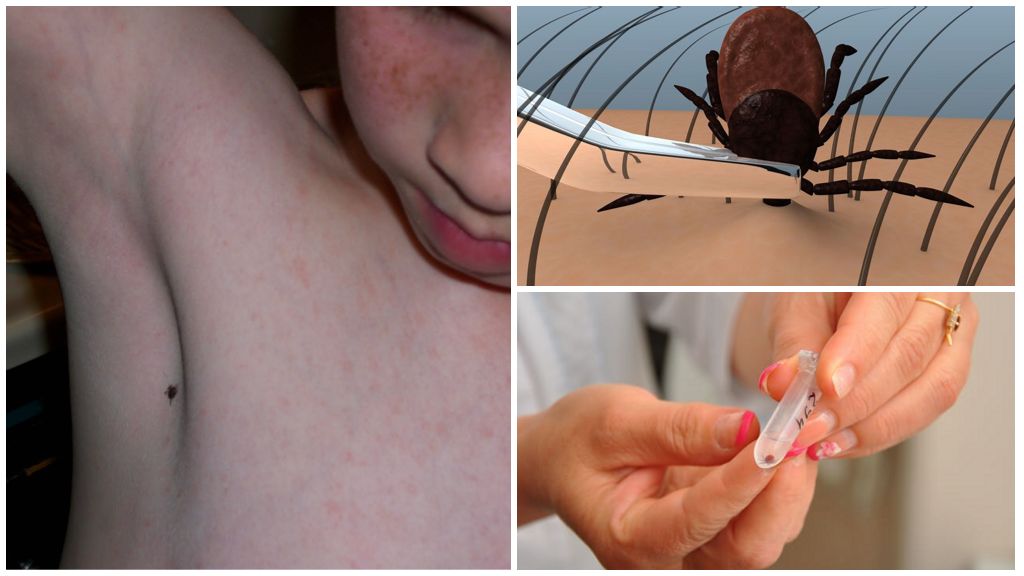
The cost of medical services in the Center for tick-borne encephalitis in Irkutsk is:
| Name of medical service | Cost of service, rub. |
|---|---|
| Initial intake of a tick bite victim, determining the type and timing of the study | 290 |
| Tick removal | 236 |
| Laboratory blood sampling | 177 |
| Study of 1 biomaterial sample (tick, or blood, or cerebrospinal fluid) for 4 tick-borne infections: tick-borne encephalitis, borreliosis (Borreliaburgdorferisl), anaplasmosis (A.phagocytophillum), ehrlichiosis (E.chaffeensis / E.muris) by PCR | 1476 |
| A tick test for tick-borne encephalitis virus (ELISA) antigen and Borrelia | 1023 |
| The study of blood serum for the presence of tick-borne encephalitis antigen by ELISA | 748 |
| Tick test for tick-borne encephalitis virus antigen (ELISA) | 877 |
| ELISA for the presence of IgM antibodies to tick-borne encephalitis virus by ELISA | 721 |
| ELISA for the presence of IgG antibodies to tick-borne encephalitis virus by ELISA | 788 |
| The study of blood serum for the presence of IgM antibodies to tick-borne borreliosis by ELISA | 715 |
| The study of blood serum for the presence of IgG antibodies to tick-borne borreliosis by ELISA | 715 |
| Reception by an infectious disease doctor (with confirmation of tick infection) for prescribing prevention | 333 |
| Tick-borne encephalitis prevention by immunoglobulin 1 dose (the number of doses is determined by the weight of the victim) | 880 |
| Intramuscular injection (without the cost of the drug) | 147 |
| Tick-borne borreliosis prevention | 94 |
| Prevention of MEP (human monocytic erichiosis) | 94 |
| Prevention of GAS (human granulocytic anaplasmosis) | 94 |
| Nonspecific prevention of tick-borne encephalitis with iodantipyrine or cycloferon preparations (course according to the scheme) | 499 |
Tick bite insurance
This situation poses a threat to human health, so experts advise in areas of widespread encephalitis ticks make insurance. This procedure helps to reduce the risk of high financial costs that will be needed in the diagnosis and treatment. tick-borne infections. The cost of insurance is about 30 rubles.

The most popular program in Irkutsk and the Anti-Tick area includes payment for medical tests and services:
- removal of ticks from the skin;
- a study in the laboratory of a parasite for the presence of pathogens of encephalitis and borreliosis;
- analysis and examination of blood serum for the presence of tick-borne encephalitis virus antigen;
- carrying out preventive measures for the detection of the virus;
- procedure for detecting antibodies in the blood.
Preventive measures
Every year, the establishment of the SES of Irkutsk, 2-3 weeks before the awakening of arthropods, i.e., in April, treats from ticks those areas of the city and region that are the most dangerous for epidemiological contamination: Yunost Island, city parks and public gardens, cemeteries, etc., which is 425 ha in area.
On a note!
Experts advise owners of summer cottages and suburban areas to conduct also territory treatment using chemicals. Companies of the city of Irkutsk, which carry out acaricidal treatment of summer cottages, can effectively help with this. Cost tick destruction is about 350 rubles per one hundred square meters.
In the future, the city authorities also plan to conduct treatment of public areas from ticks in Irkutsk in 2019,which will help reduce the number of blood-sucking parasites and reduce the statistics of victims of bites and the number of tick-borne encephalitis cases in the city and region.
